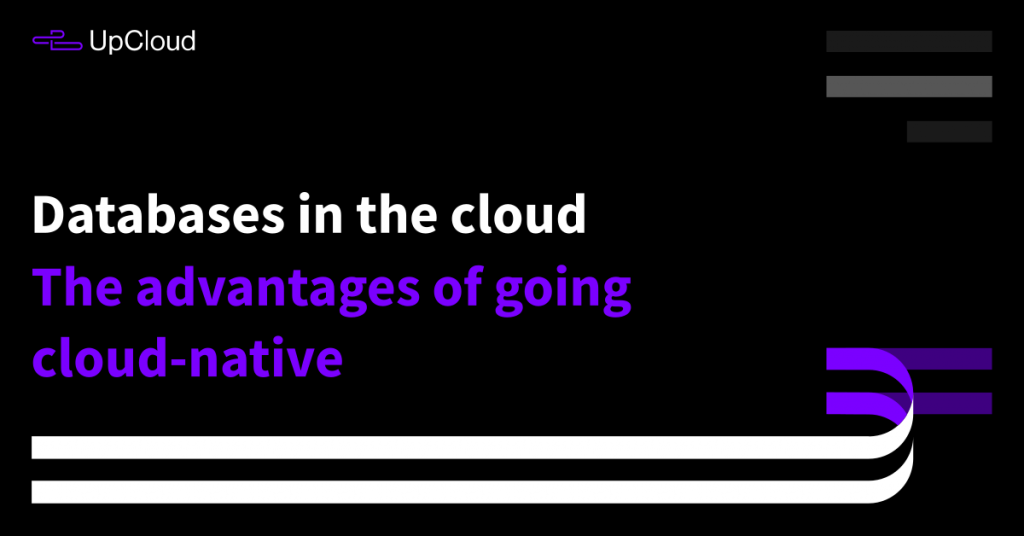A database can be the most important component of a successful service and there’s little room for error. If the prospects of maintaining a database yourself sound overwhelming, you might want to let someone else worry about the technical details. When that’s the case, you should look into database-as-a-service (DBaaS) providers.
In this fourth edition of our series of hosting databases in the cloud, we’ll be diving into the details of a database-as-a-service model. As mentioned, this post is part of a larger story, you can find insights into the benefits of hosting a database in the cloud, cloud-native databases, and database management systems in the previous posts.
The simplicity of DBaaS
Database-as-a-service is a subscription-based service model where the database is run and managed by the service provider on their infrastructure. It delivers a keys-to-hand solution where the DBaaS provider installs, maintain, and back up the database systems. In essence, all you have left to do is to connect your application to its new database!
In a managed environment, many of the advanced features such as backups, replication, and clusters can be set up in minutes. Once launched, you are provided with integrated monitoring and metric tools to your database with support from technicians specialized in database management when needed.
Benefiting from professional expertise
Database-as-a-services often allow a much low barrier of entry to database hosting than self-managed options due to the preconfigured and tested nature of the service model. By placing your trust in the expertise of the DBaaS provider, you gain greater access to technologies that might otherwise only be available to larger enterprises. In addition, using a managed service built around user comfort comes with better control on costs when everything can be itemised by price.
Rest assured, your data is secured. Managed database services worth their salt are usually built on high availability and fault-resilience with automated recovery. Furthermore, the best providers, confident in their solutions, might offer a high-level commitment with a 100% service level agreement. And even if something were to go wrong, the backup solutions can allow recovery to a certain point in time.
Although DBaaS providers have the knowledge and skills in database management to build a whole service around it, not every feature translates easily to the service model. You might find some features more limited than in a self-managed alternative.
Going forward
While databases as a service is a relatively new model, databases themselves have a long and rich history. There is a lot going on with DBaaS on the development side and you can expect to see it just grow in the future. Much of the current progress is focusing on simplicity and ease of use, and for this, cloud servers are a great platform for modern databases.
Interested in giving a managed database service a try? Check out UpCloud Managed Databases which offers premium open-source database options with high availability, automated backups and maintenance!
Conclusions
Whether you are looking to improve upon a legacy data table or build an entirely new data model, you should consider the options and benefits cloud computing offers. Migrating to the cloud opens up many possibilities for example high availability, fault tolerance, and replication across the globe. And if you don’t want to manage anything yourself, our Managed Databases which are built on UpCloud’s infrastructure are a great option!


